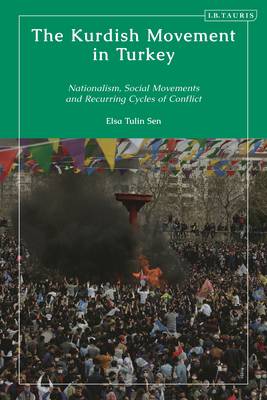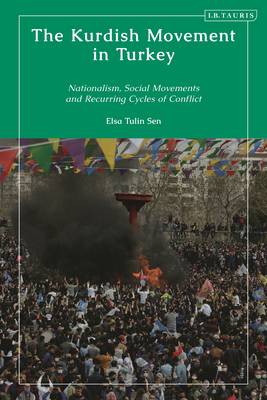
- Afhalen na 1 uur in een winkel met voorraad
- Gratis thuislevering in België vanaf € 30
- Ruim aanbod met 7 miljoen producten
- Afhalen na 1 uur in een winkel met voorraad
- Gratis thuislevering in België vanaf € 30
- Ruim aanbod met 7 miljoen producten
Zoeken
The Kurdish Movement in Turkey
Nationalism, Social Movements and Recurring Cycles of Conflict
Elsa Tulin Sen
€ 129,95
+ 259 punten
Omschrijving
This book examines the Kurdish movement in the context of total social movement theory. First tracing its origins as a conventionally nationalist movement, Elsa Sen draws upon Alain Touraine's concept of a total social movement to argue that from 2000 to 2015 the Kurds in Turkey pursued a policy of engaging in a peace process, channeling energy into civil society activism and electoral campaigns, and promoting an inclusive understanding of national identity for all the components of Turkish society - not just the Kurds - in a hypothetically fully functioning democracy. Both theoretically informed and drawing upon empirical research in the form of interviews with Kurdish and Turkish activists, non-activists and political representatives, the book provides a new perspective on contemporary Kurdish politics as oscillating between nationalist and social movement paradigms, with the recent decline of the latter due to the resumption of military action by the Turkish state and the Kurdistan Workers' Party after 2015.
Specificaties
Betrokkenen
- Auteur(s):
- Uitgeverij:
Inhoud
- Aantal bladzijden:
- 208
- Taal:
- Engels
- Reeks:
Eigenschappen
- Productcode (EAN):
- 9780755644087
- Verschijningsdatum:
- 18/09/2025
- Uitvoering:
- Hardcover
- Formaat:
- Genaaid
- Afmetingen:
- 156 mm x 234 mm
- Gewicht:
- 453 g

Alleen bij Standaard Boekhandel
+ 259 punten op je klantenkaart van Standaard Boekhandel
Beoordelingen
We publiceren alleen reviews die voldoen aan de voorwaarden voor reviews. Bekijk onze voorwaarden voor reviews.








